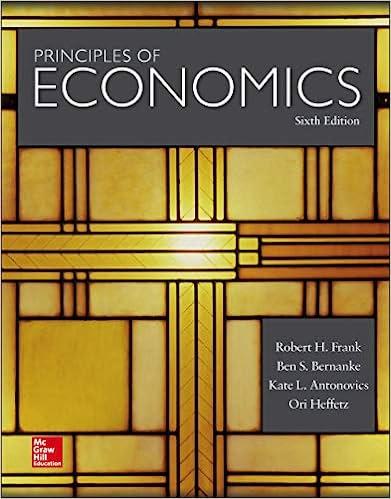Question
2.A risk neutral criminal has wealth of $10,000 and would claim a benefit of $500 from committing a particular bad act.If the probability of enforcing
2.A risk neutral criminal has wealth of $10,000 and would claim a benefit of $500 from committing a particular bad act.If the probability of enforcing and punishing individuals for the act is 1%,then
a.at the current level of enforcement, this individual will not be deterred from acting.
b.a monetary sanction of $5,000 would deter the individual from acting.
c.a monetary sanction of $10,000 would deter the individual from acting.
da monetary sanction $50,000 would deter this individual from acting.
e.a fine somewhere between $50 and $100 would be sufficient to deter this individual.
3.Suppose all parties are risk neutral with wealth of $10,000, and that enforcing the laws and imposing sanctions is costly and the costs are positively related to the probability of enforcement (the higher the probability of apprehending the criminals, the more expensive the enforcement).Society can set the probability of enforcement, but can also determine the optimal fine to impose in the case of enforcement.If society initially sets the probability of enforcement at 10%, imposing a fine of $1,000, then
a.such an enforcement regime is efficient.
b.society would be unequivocally better off by increasing the probability of enforcement to 50% and imposing a fine of $5,000.
c.society would be unequivocally better off by leaving the fine at $1,000 but increasing the probability of enforcement to 20%.
d.society could deter just as many people with an enforcement probability of 5% and a fine of $2,000.
Step by Step Solution
There are 3 Steps involved in it
Step: 1

Get Instant Access to Expert-Tailored Solutions
See step-by-step solutions with expert insights and AI powered tools for academic success
Step: 2

Step: 3

Ace Your Homework with AI
Get the answers you need in no time with our AI-driven, step-by-step assistance
Get Started


